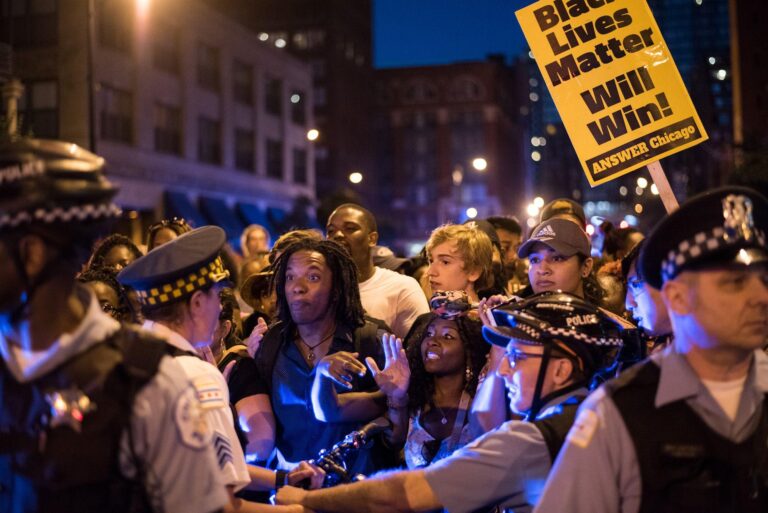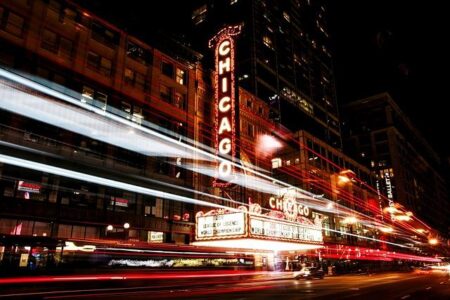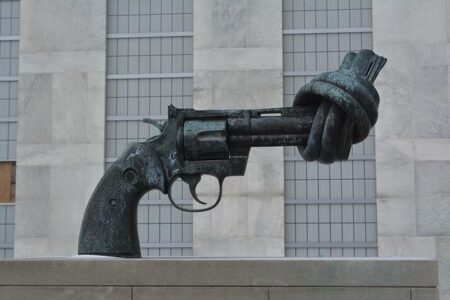Chicago Sees Significant Crime Reduction in July: Mayor Johnson Highlights Strategic Efforts
Mayor Johnson Attributes July Crime Drop to Innovative, Data-Driven Approaches
In a recent address to ABC7 Chicago, Mayor Brandon Johnson announced a remarkable downturn in crime rates across Chicago for July 2024.Emphasizing the role of data-informed tactics, the mayor credited the city’s success to focused interventions, enhanced community policing, and strong partnerships with local organizations. “By integrating real-time analytics with frontline feedback, we are making strides toward a safer city,” Johnson stated, reinforcing the administration’s dedication to transparency and measurable outcomes.
Reviewing the latest crime statistics reveals notable decreases in several violent crime categories, underscoring the effectiveness of Chicago’s revamped public safety initiatives. Key figures for July 2024 compared to June 2024 include:
| Crime Category | July 2024 | June 2024 | Percentage Change |
|---|---|---|---|
| Homicides | 23 | 35 | -34.3% |
| Robberies | 190 | 245 | -22.4% |
| Aggravated Assaults | 320 | 390 | -17.9% |
- Expanded foot patrols in neighborhoods identified as high-risk
- Broadened community engagement programs citywide
- Advanced data analytics to strategically allocate resources
Strengthening Community Bonds: The Backbone of Violence Reduction
Mayor Johnson underscored the pivotal role of community involvement in the city’s crime reduction strategy. By nurturing open communication channels between residents and law enforcement, Chicago has seen a rise in mutual trust and cooperation. Programs such as neighborhood watch patrols, youth mentorship, and public safety dialogues have empowered citizens to take an active role in crime prevention. Officials attribute much of the recent decline in violent crime to this collaborative framework, especially in neighborhoods historically impacted by violence.
Key components of these community policing efforts include:
- Frequent town hall meetings to address residents’ concerns
- Increased presence of officers familiar with local communities
- Support networks targeting at-risk youth and vulnerable groups
- Collaborations with nonprofits to provide education and resources
| Program | Objective | Results |
|---|---|---|
| Neighborhood Patrols | Boost officer visibility | 20% decrease in street-level violence |
| Youth Mentorship | Deter gang recruitment | 15% reduction in juvenile arrests |
| Public Safety Forums | Encourage community feedback | 25% improvement in trust ratings |
Investing in Chicago’s Future: Youth Programs and Public Safety Enhancements
Mayor Johnson’s administration is prioritizing significant investments in youth-centered initiatives as a cornerstone of long-term crime prevention. By increasing funding for after-school programs, mentorship opportunities, and vocational training, the city aims to provide constructive alternatives to violence and gang involvement. These efforts are designed to instill hope and a sense of belonging among Chicago’s youth, which is critical for lasting public safety improvements.
Alongside youth outreach, the city is bolstering neighborhood policing with a focus on building trust and engagement. The administration’s complete investment plan includes:
- 40% rise in community outreach officers
- 30% expansion of youth employment programs
- Strengthened partnerships with schools and local nonprofits
| Program | Funding Increase | Anticipated Outcome |
|---|---|---|
| After-School Mentorship | 35% | Lower youth crime rates |
| Job Training Programs | 25% | Higher youth employment |
| Community Policing | 40% | Enhanced public trust |
Fostering Ongoing Partnerships Between Residents and City Leaders
Mayor Johnson stressed that maintaining the downward trend in crime requires a unified effort between city officials and Chicago’s communities. He called for continuous communication, shared responsibility, and openness to address public safety challenges effectively.The administration is committed to initiatives that build trust and encourage collaboration, recognizing that collective action amplifies the impact of law enforcement and social programs.
Residents are encouraged to contribute through:
- Active participation in neighborhood watch groups and local meetings
- Prompt reporting of suspicious behavior to authorities
- Engagement with social services to tackle underlying causes of crime
- Support for youth mentorship and violence prevention programs
Recent community engagement efforts have demonstrated measurable success, as shown below:
| Engagement Program | Neighborhoods Involved | Crime Reduction (%) |
|---|---|---|
| Community Watch Groups | 20 | 14% |
| Youth Mentorship Outreach | 15 | 18% |
| Neighborhood Advisory Panels | 12 | 12% |
These statistics reinforce the mayor’s message that lasting improvements in public safety depend on active collaboration among all stakeholders. Chicago’s leadership continues to champion innovative, inclusive solutions, affirming that community solidarity is essential for a safer city.
Conclusion: Sustaining Momentum for a Safer Chicago
As Chicago confronts ongoing public safety challenges, the encouraging decline in crime rates this July offers a hopeful outlook. Mayor Brandon Johnson’s remarks highlight the importance of combining enforcement with prevention, backed by data-driven policies and strong community partnerships. Moving forward, the city plans to maintain this balanced approach, ensuring that all residents can enjoy safer neighborhoods through continued cooperation and strategic investments.





